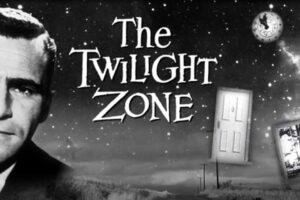
In the world of Hollywood, where the line between fiction and reality often blurs, there exists an accounting practice that’s as enigmatic as any plot twist: Hollywood Accounting. This isn’t about glamorous accountants crunching numbers under the Californian sun, but rather a financial sleight of hand that makes even the most successful films appear unprofitable on paper.
What is Hollywood Accounting?
At its core, Hollywood Accounting involves inflating the expenses of a movie to such an extent that, on paper, the film appears to make little to no profit. This is done despite the movie earning substantial box office revenues. The primary motive? To reduce the amount owed to actors, writers, and other stakeholders who have profit-sharing agreements.
The Three Sets of Books
It’s often joked that Hollywood keeps three sets of books: one for the IRS, one for the movie studio, and one for the net profit participants—those owed a percentage of a project’s profits after costs are recouped. In this system, net profit participants rarely, if ever, see a dime of the movie’s earnings. This is the essence of Hollywood accounting.
The Illusion of Unprofitability
How can a film like “Return of the Jedi,” which ranks among the top 20 biggest blockbusters of all time, earning over $500 million on a $32 million budget, be deemed unprofitable? This is the magic of Hollywood accounting. While the film undoubtedly made money for the studio, the narrative of it being in the red is part of a larger system.
Studios craft tales of non-existent costs, ensuring all profits are funneled back to them. Despite challenges to this system, most net profit participants never see any profits. Yet, studios continue to offer “net points” generously.
The Mechanics of Hollywood Accounting
The primary distinction between Hollywood accounting and conventional corporate accounting lies in compensation. Shares of the film, or “points,” are given to key players involved in the production. However, these shares rarely translate to actual earnings. To ensure no net profits, films are contractually designed to be unprofitable, regardless of their earnings.
Each film is structured like a corporation intended to lose money. Within this structure are shell companies, existing primarily in name, designed to drain the film’s profits and redirect them to the studio. These companies manage various aspects, from advertising to distribution, and even general expenses like travel for studio executives.
Studios often charge themselves through these shell companies. For instance, a distribution fee of 30 to 35 percent of a movie’s earnings goes directly to the studio. Additionally, films are charged exorbitant amounts for advertising, publicity, and other expenses. This approach to hiding profits, rather than losses, is what sets Hollywood accounting apart.
The Evolution of Hollywood Accounting
Hollywood’s unique accounting system wasn’t deliberately designed but evolved over time. In the past, actors like Rita Hayworth and Jimmy Stewart struck deals that allowed them a percentage of net profits. These deals were so new that studios hadn’t yet figured out how to manipulate the contracts, leading to lucrative outcomes for the actors.
By the 1960s and 1970s, many in the industry participated in the profits of hit movies. Warren Beatty’s involvement in “Bonnie and Clyde” is a prime example. He earned a significant portion of the gross profits, prompting studios to reevaluate their contracts. Over the years, while the allure of profit-sharing increased, the actual profit shared decreased.
Hollywood Accounting Battles
There are numerous examples of blockbuster films that, according to Hollywood accounting, are still unprofitable. Films like “The Lord of the Rings” trilogy, the original “Batman,” and “My Big Fat Greek Wedding” are all said to be in the red despite their massive box office success.
Over the years, some have challenged this system. Filmmaker Michael Moore, for instance, sued producers over profits for “Fahrenheit 9/11.” Writer Art Buchwald won a significant sum from Paramount for his contribution to “Coming to America.” Despite these challenges, Hollywood accounting remains largely unchanged.
Hollywood accounting is a system shrouded in mystery, speculation, and intrigue. While some insiders have shared their experiences, like director Scott Derrickson’s claim that his profit deal for “The Exorcism of Emily Rose” was worth less than a sandwich, the system remains intact. As the spotlight continues to shine on Hollywood, only time will tell if this unique accounting practice will ever face its final curtain call.










Leave a Reply